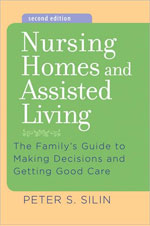Dementia and Stimulation
The Recreation Director at Dufferin Care Centre told me about Flaghouse ( www.flaghouse.ca). They have products and catalogues for many different populations, including for people with disabilities and dementia. She showed me Snoezelen a method and products for stimulation of people, with among other things, dementia. For information on this product: http://www.flaghouse.ca/SnoezelenAL.asp
What I especially like is that it allows people to interact with loved ones who have advanced dementia. Or maybe I should say, it allows people with advanced dementia to interact with their loved ones.
From their website: The SNOEZELEN environment is safe and non-threatening. Children and adults with disabilities or other limiting conditions enjoy gentle stimulation of the primary senses. There is no need for intellectual reasoning. Participants experience self-control, autonomous discovery, and exploration-achievements that overcome inhibitions, enhance self-esteem, and reduce tension. Free from the expectations of others and away from the pressures of directed care, they recuperate and relax.
Research has shown that multisensory environments offer a wealth of benefits, often affording the participant and caregiver an opportunity to improve communications, enhance their understanding of each other, and build trust in their relationship. SNOEZELEN is a wonderful experience to enjoy and share-a place that replenishes the spirit. SNOEZELEN® is a registered trademark of ROMPA® Ltd. All
Labels: Dementia and Caregiving



